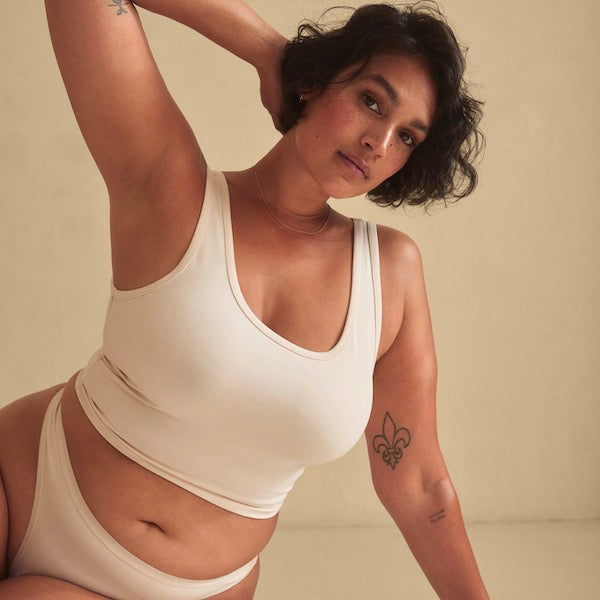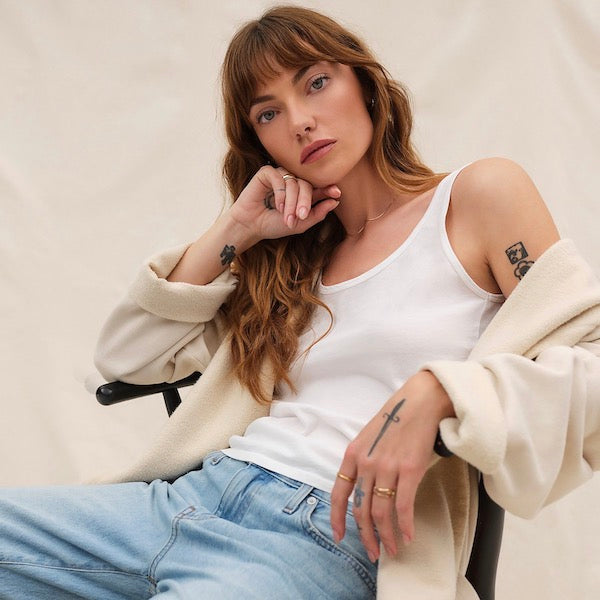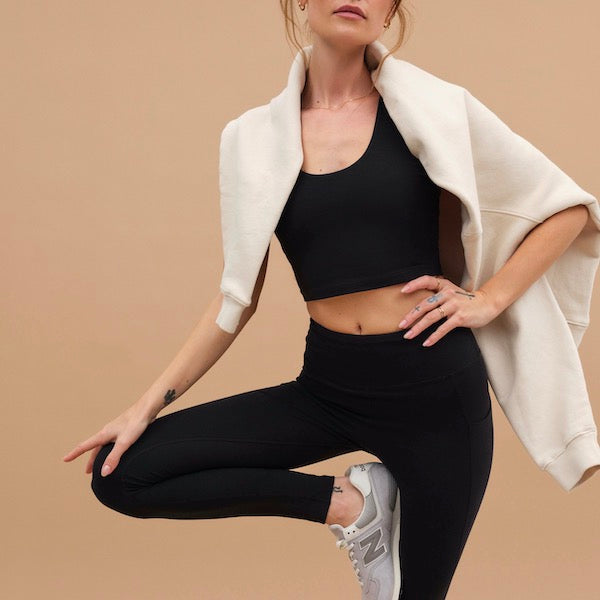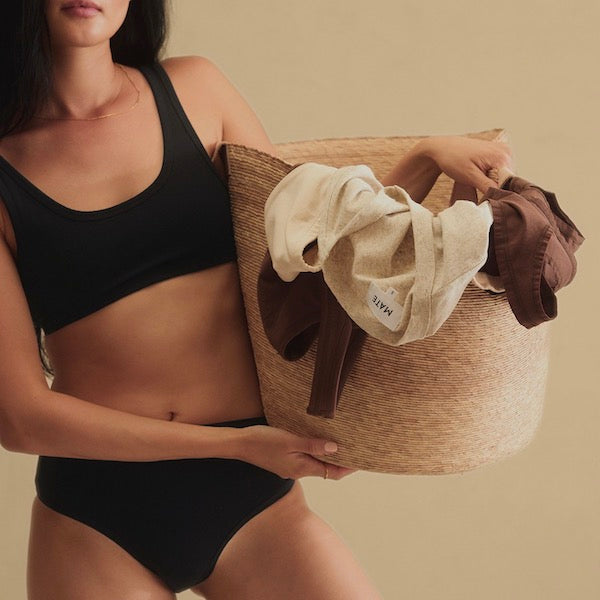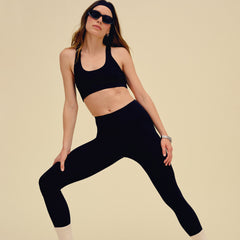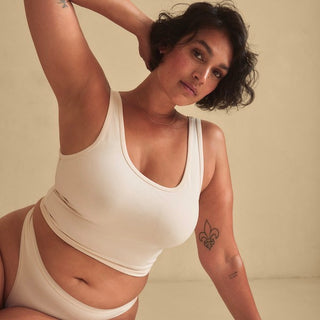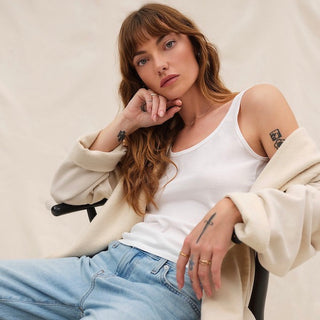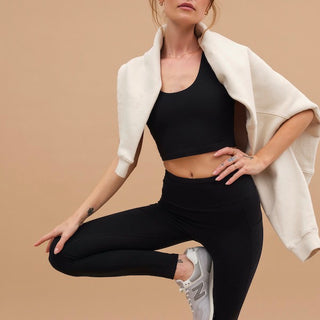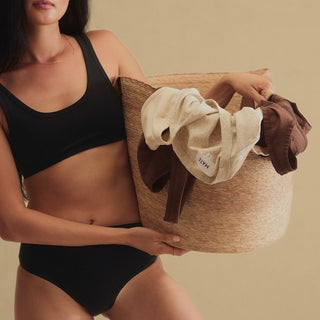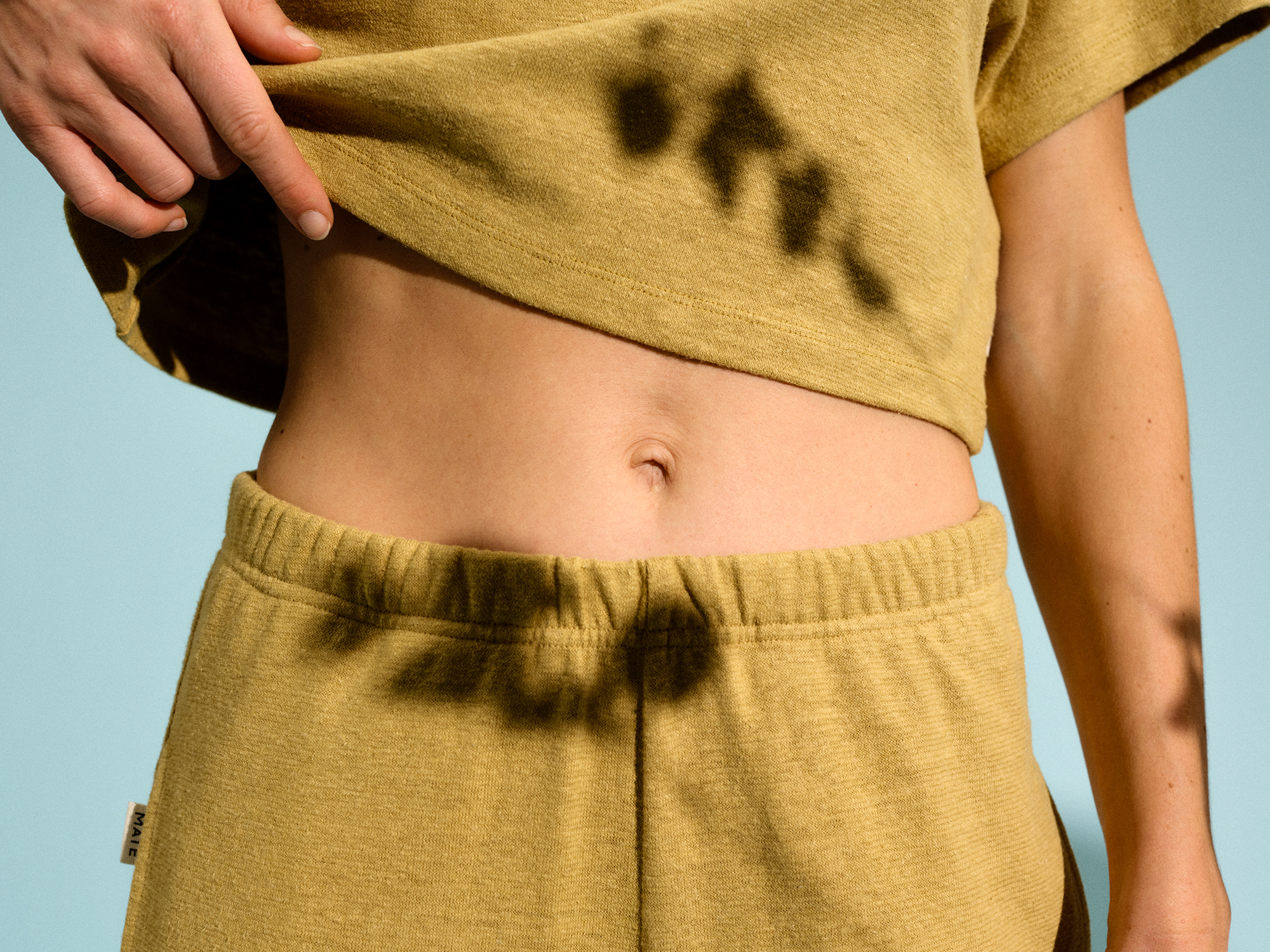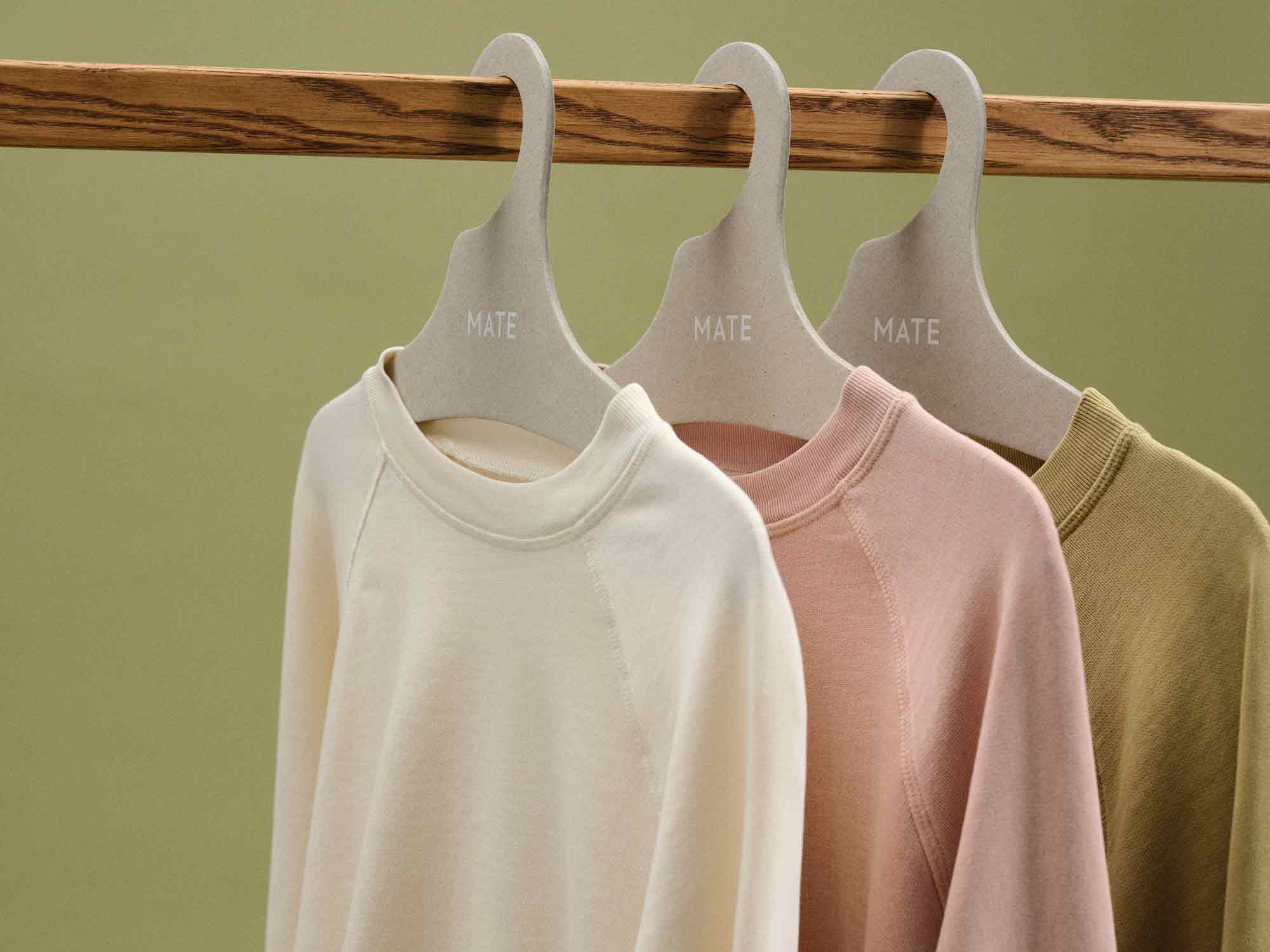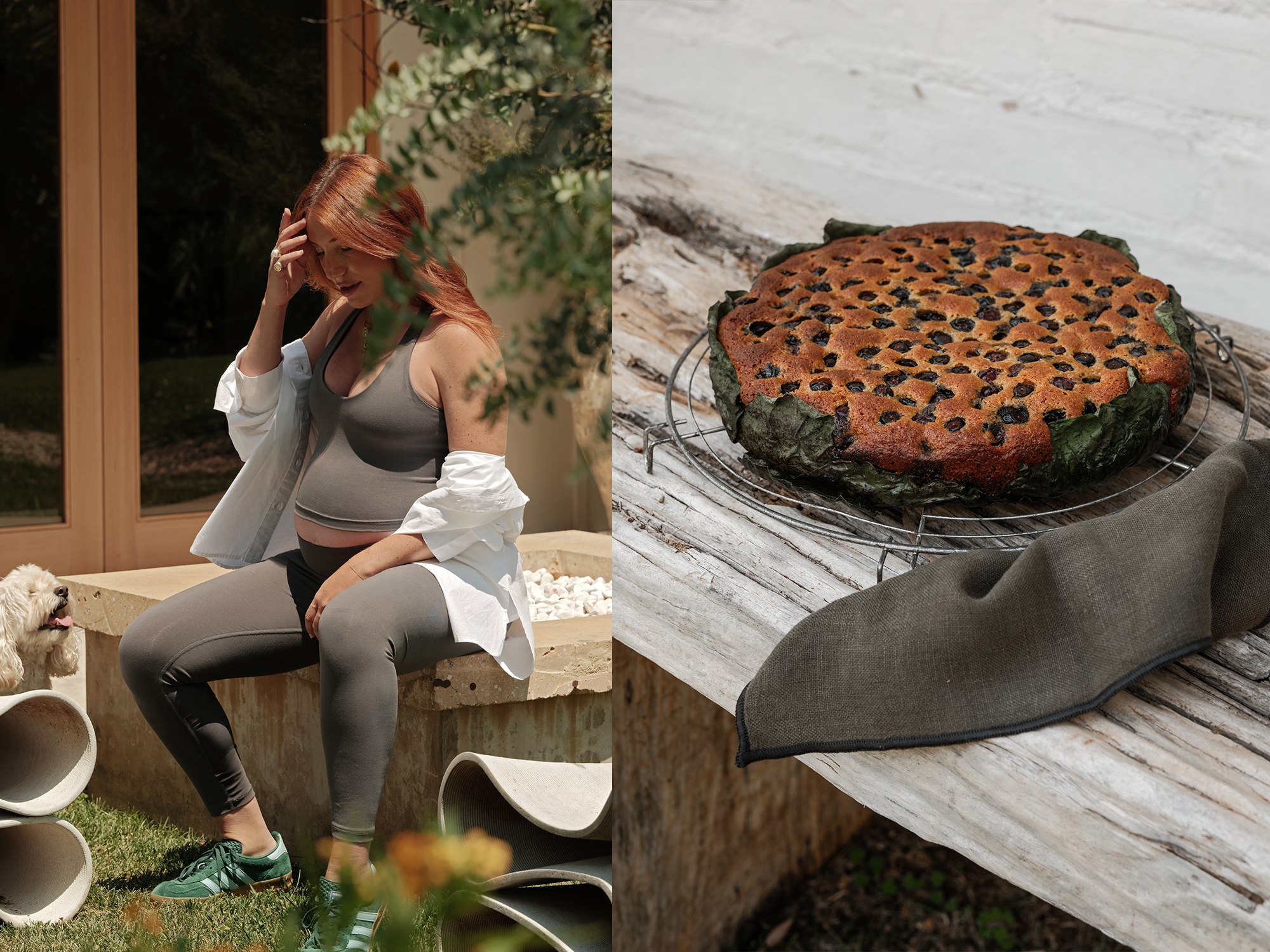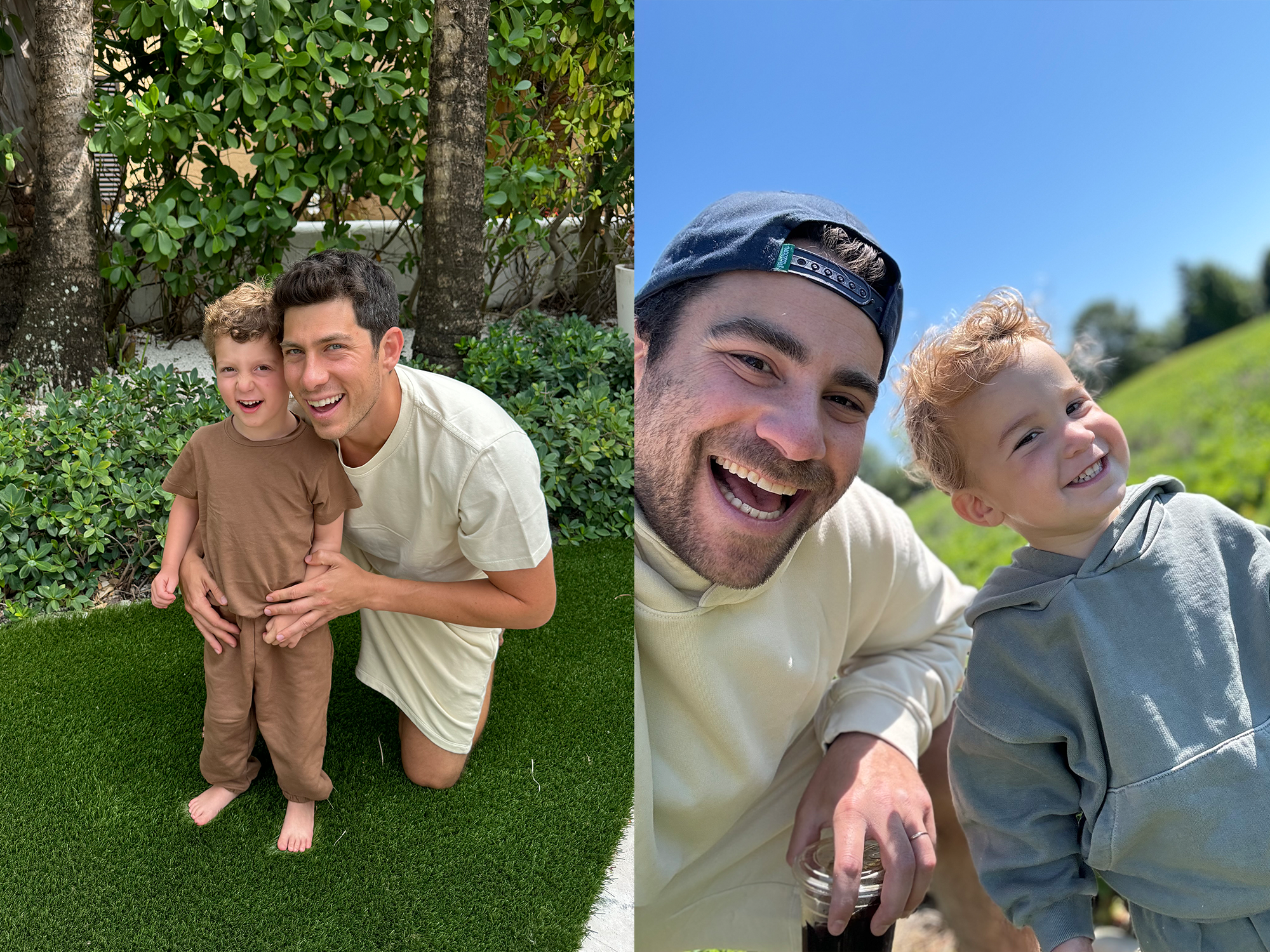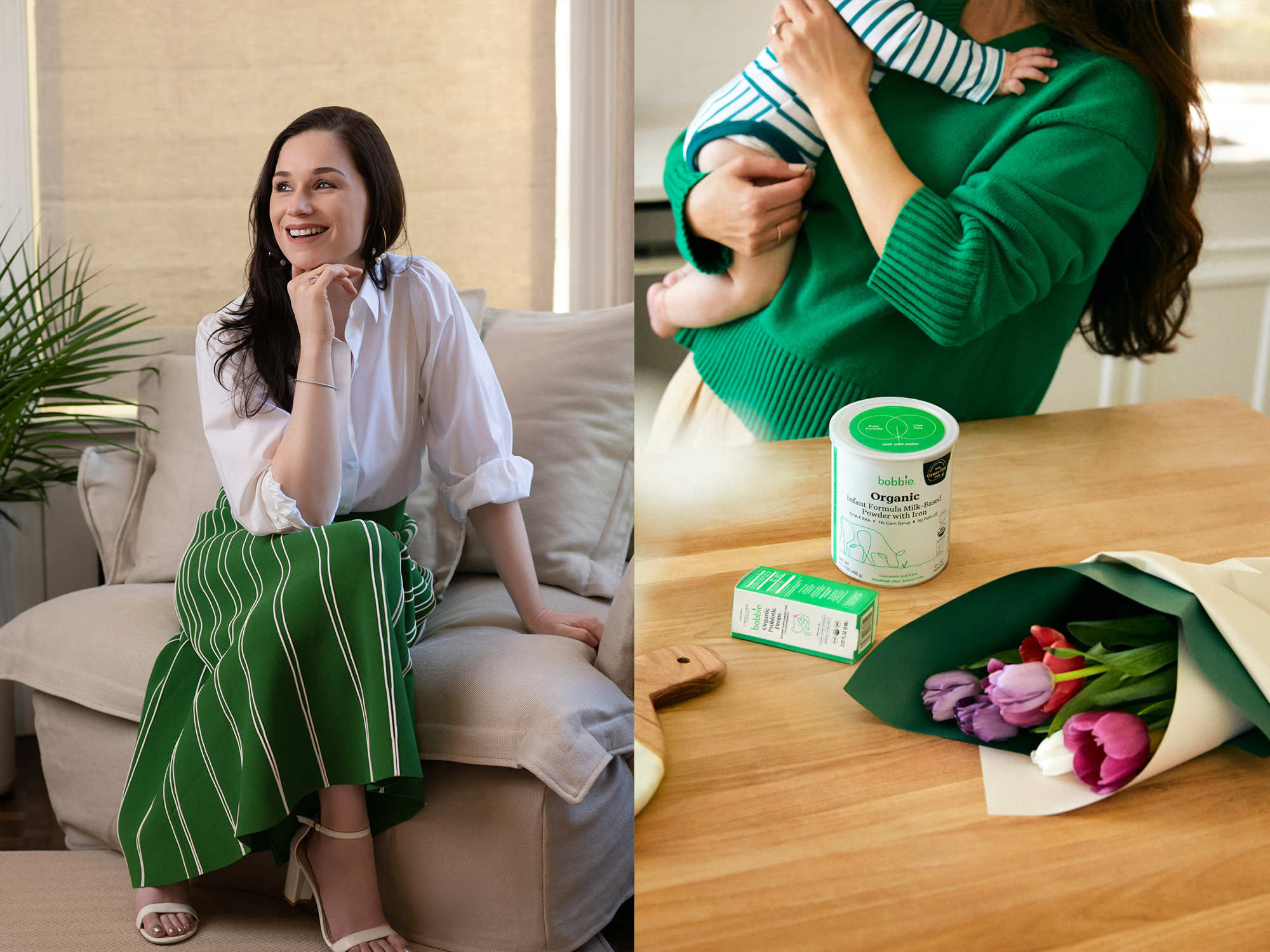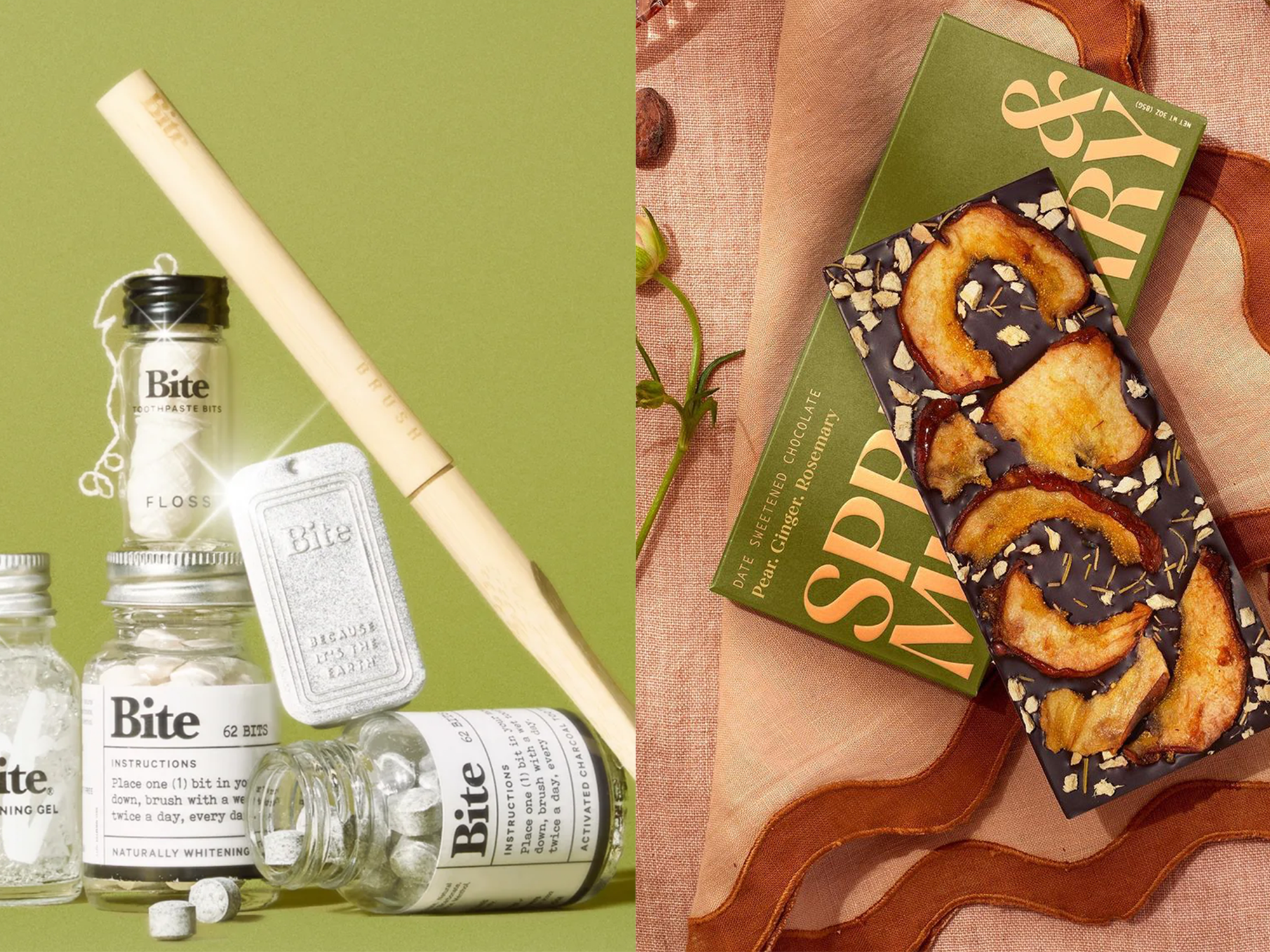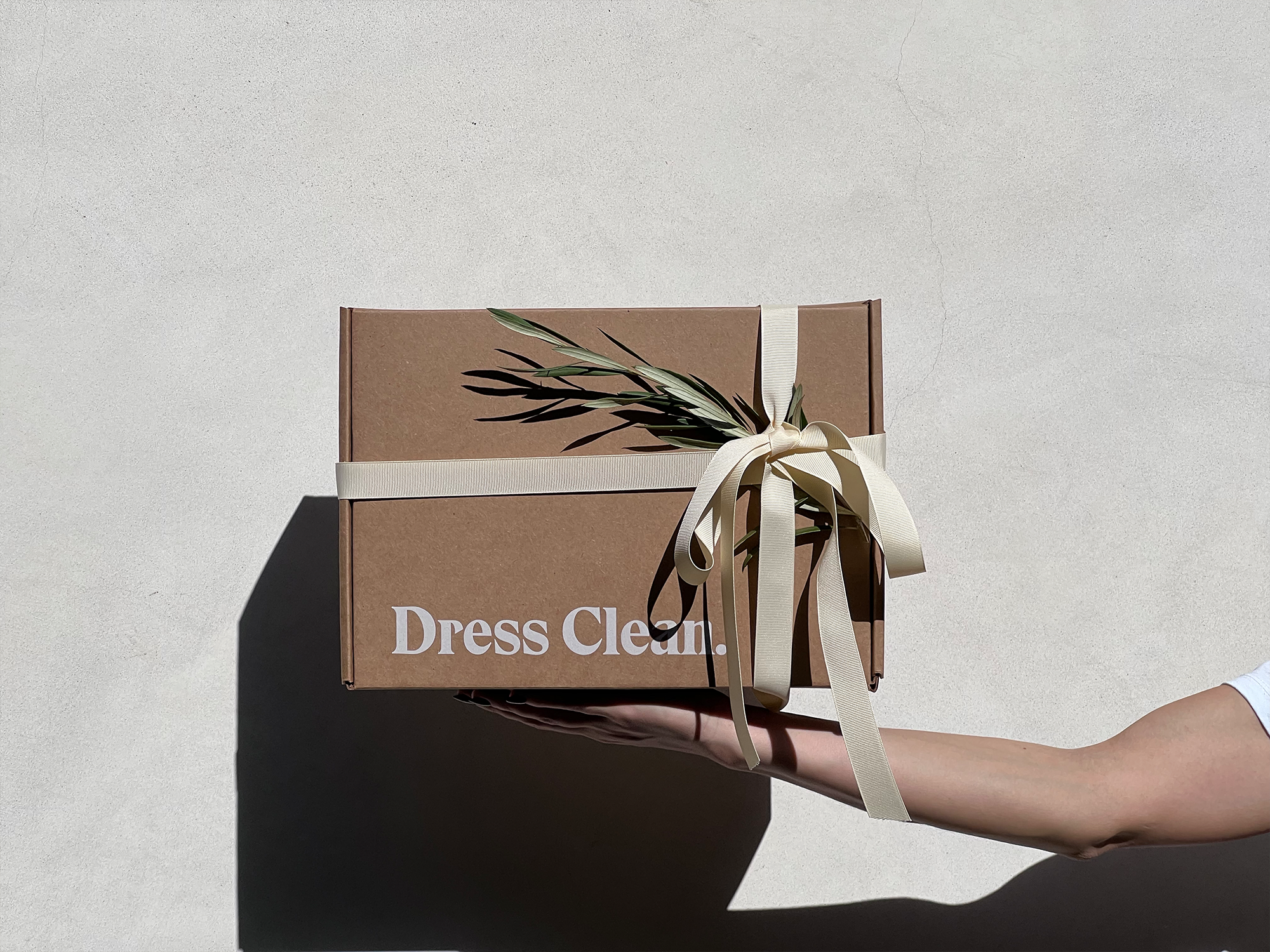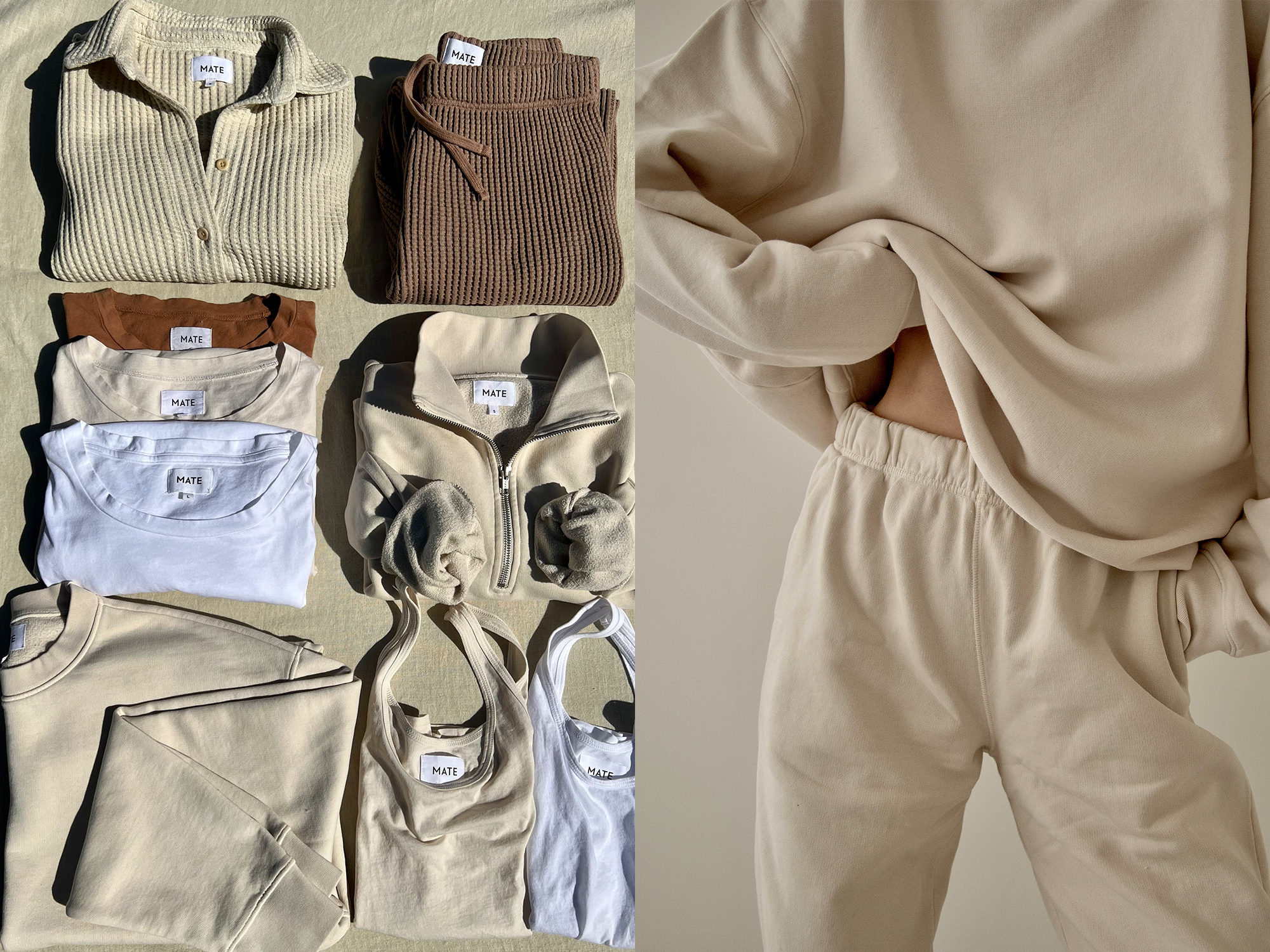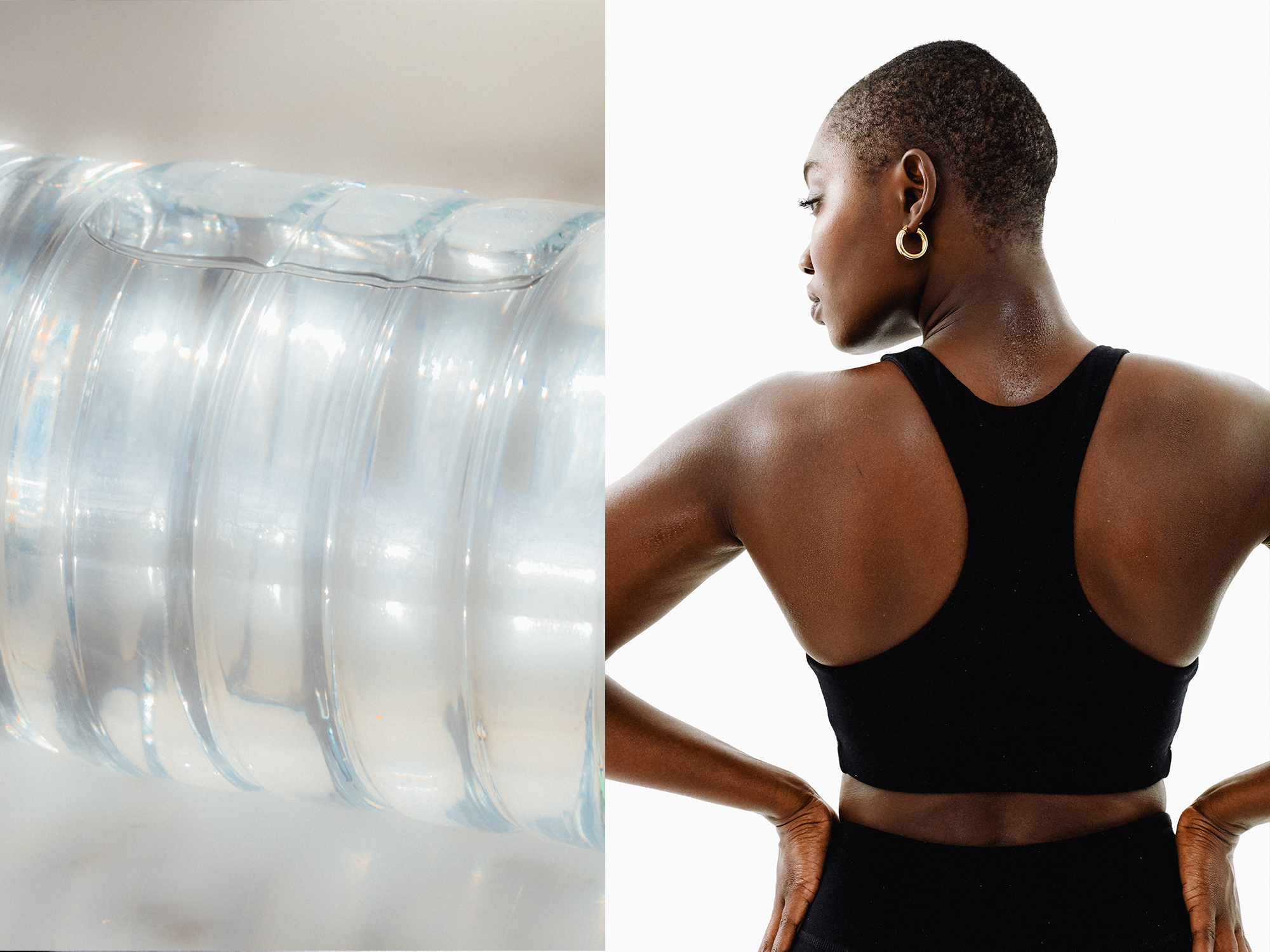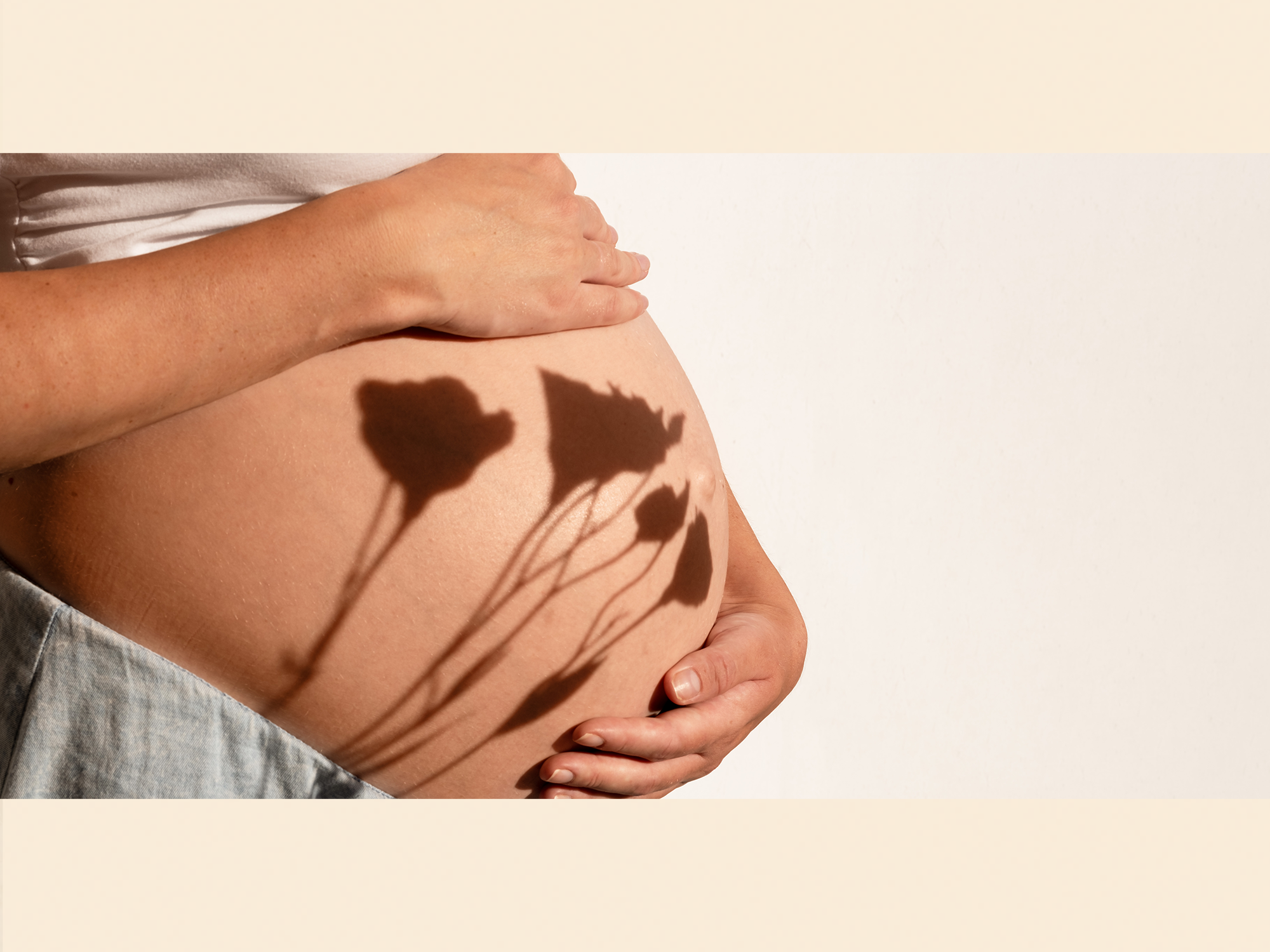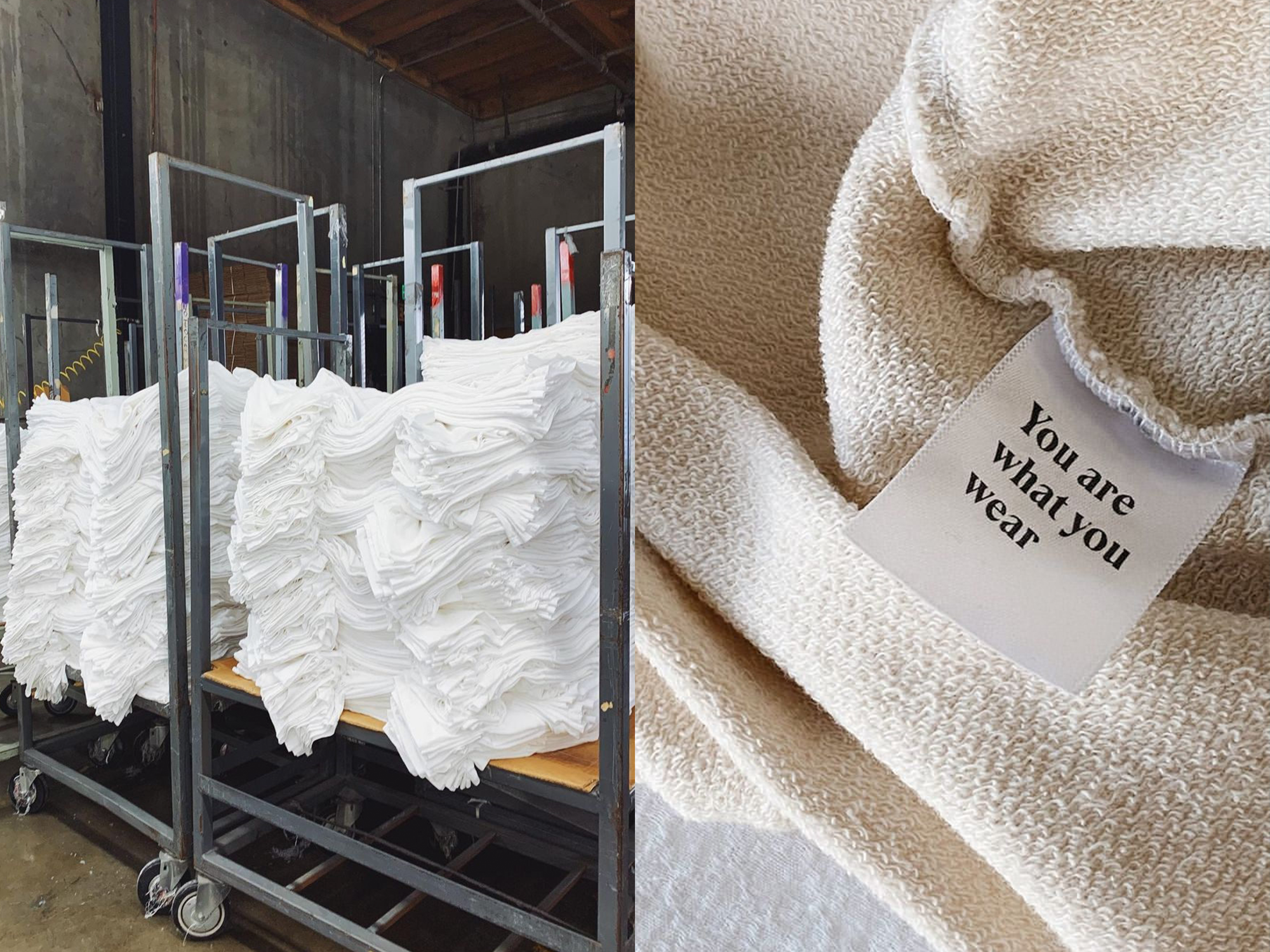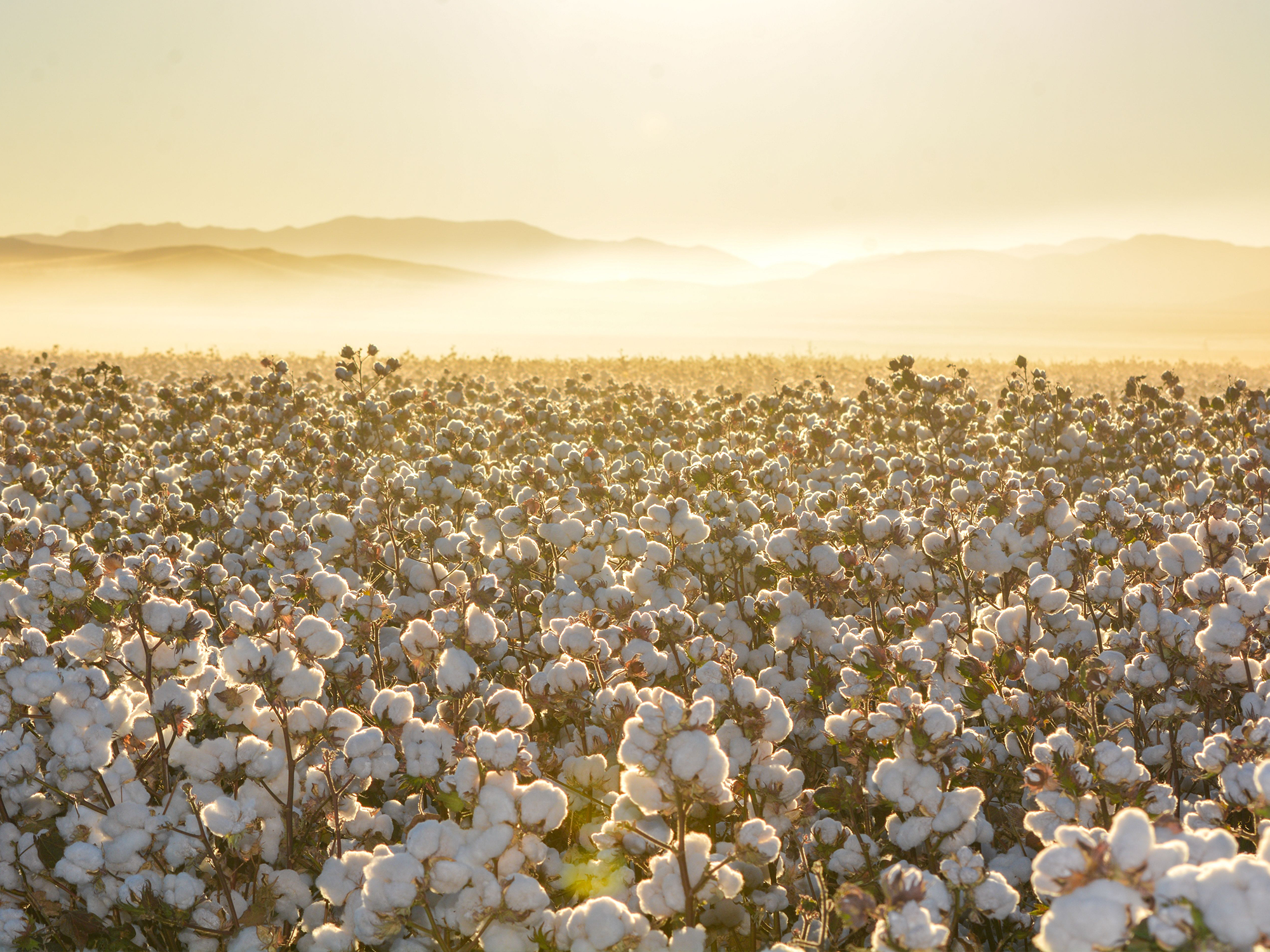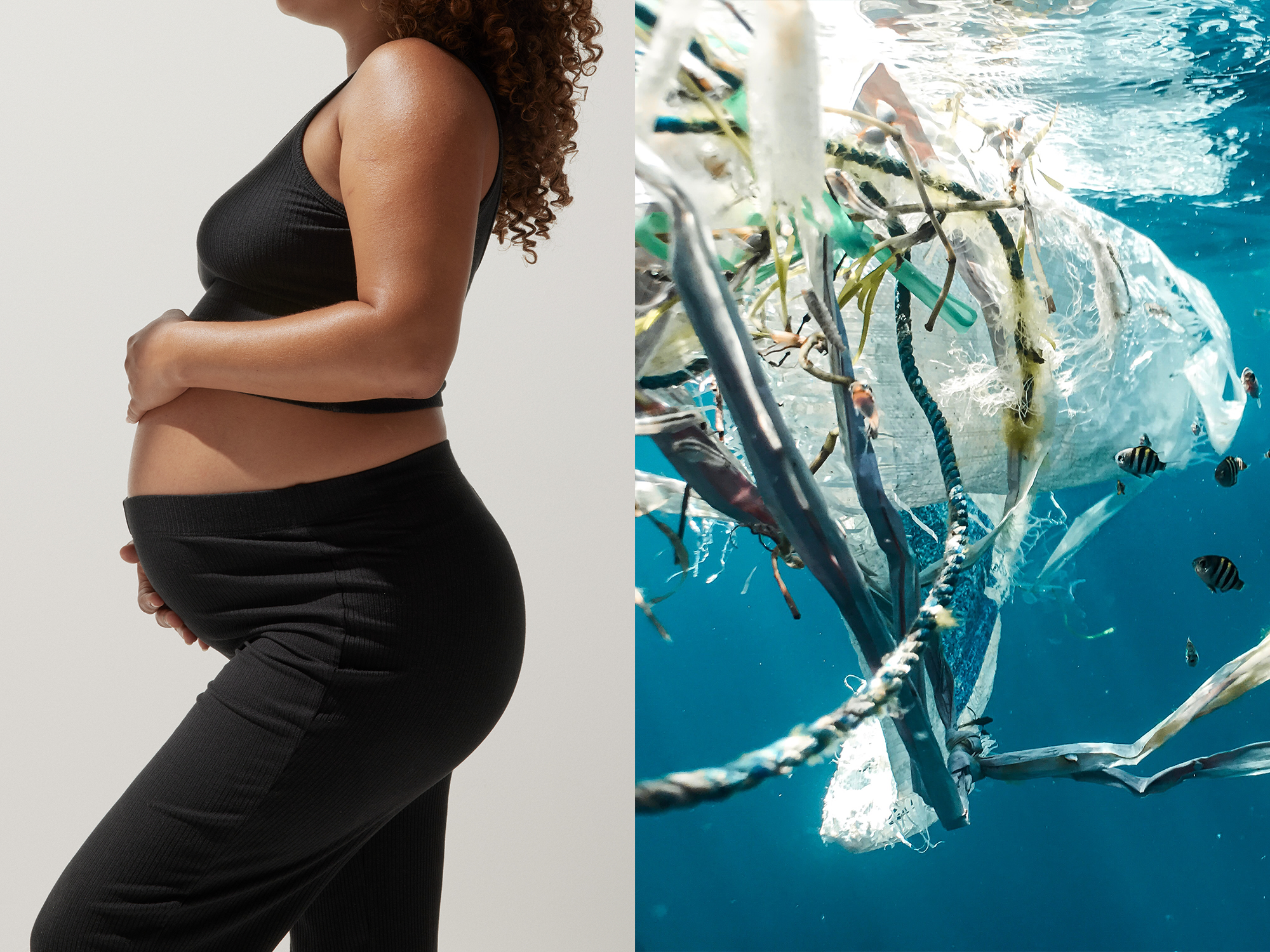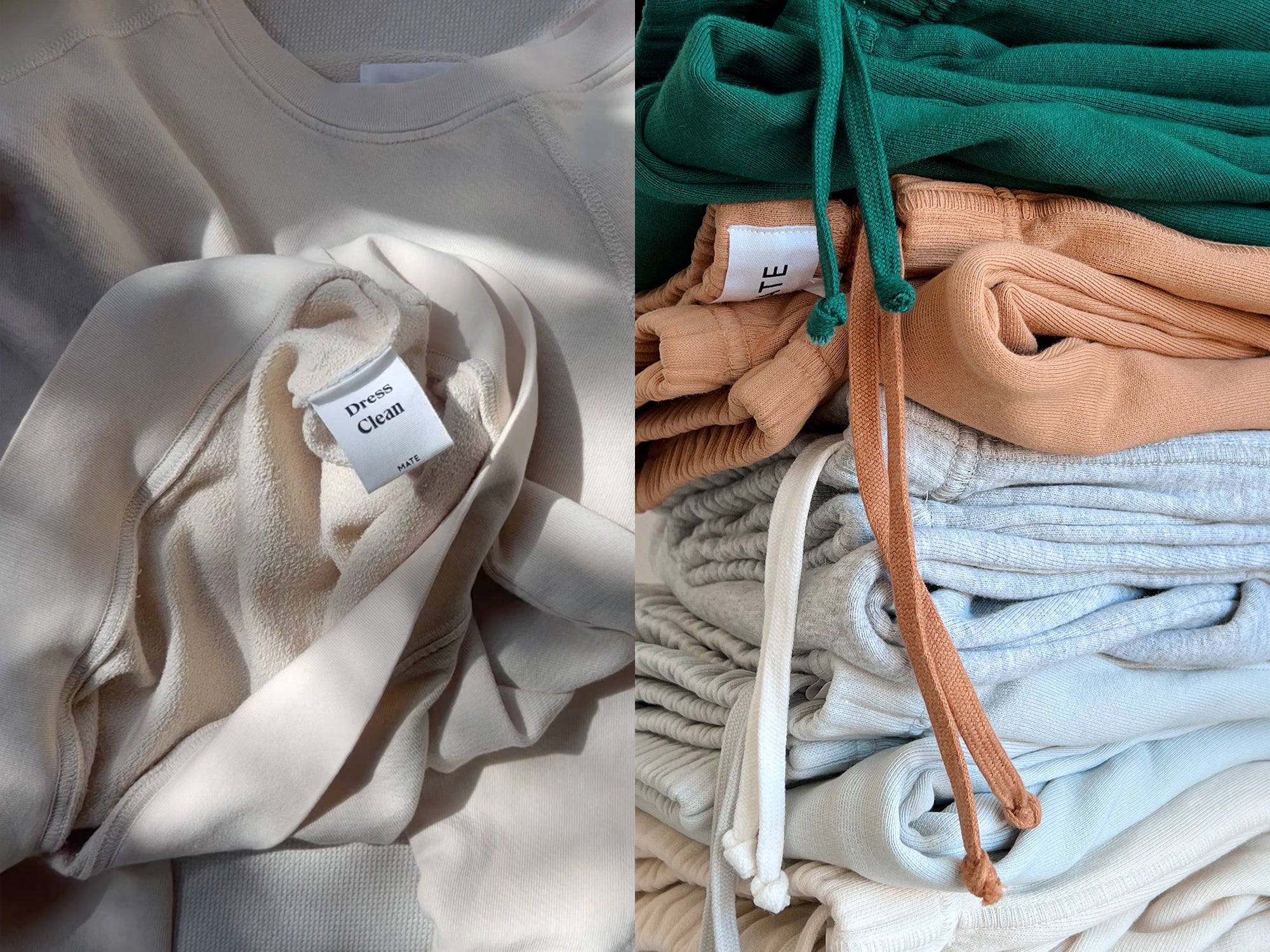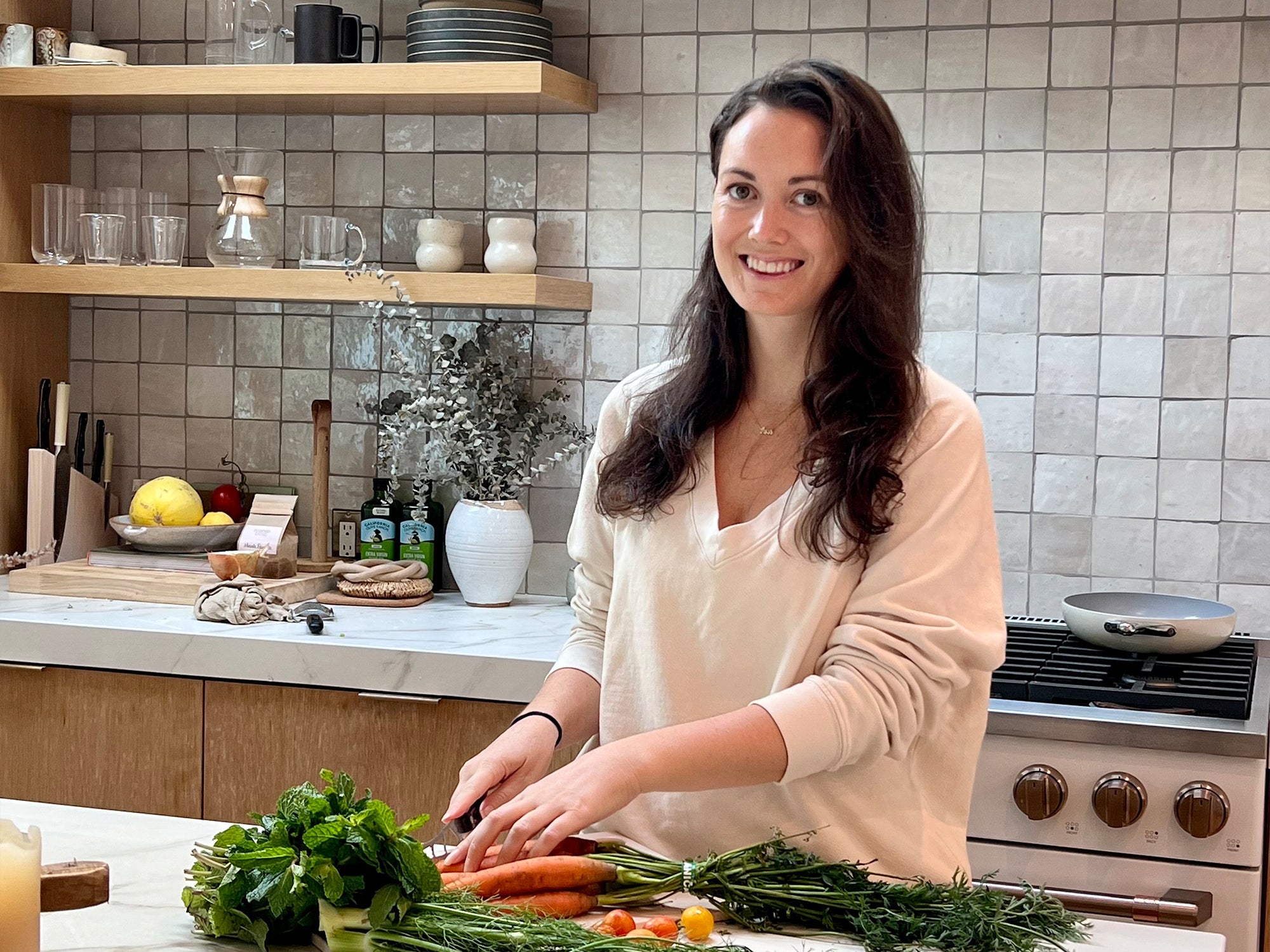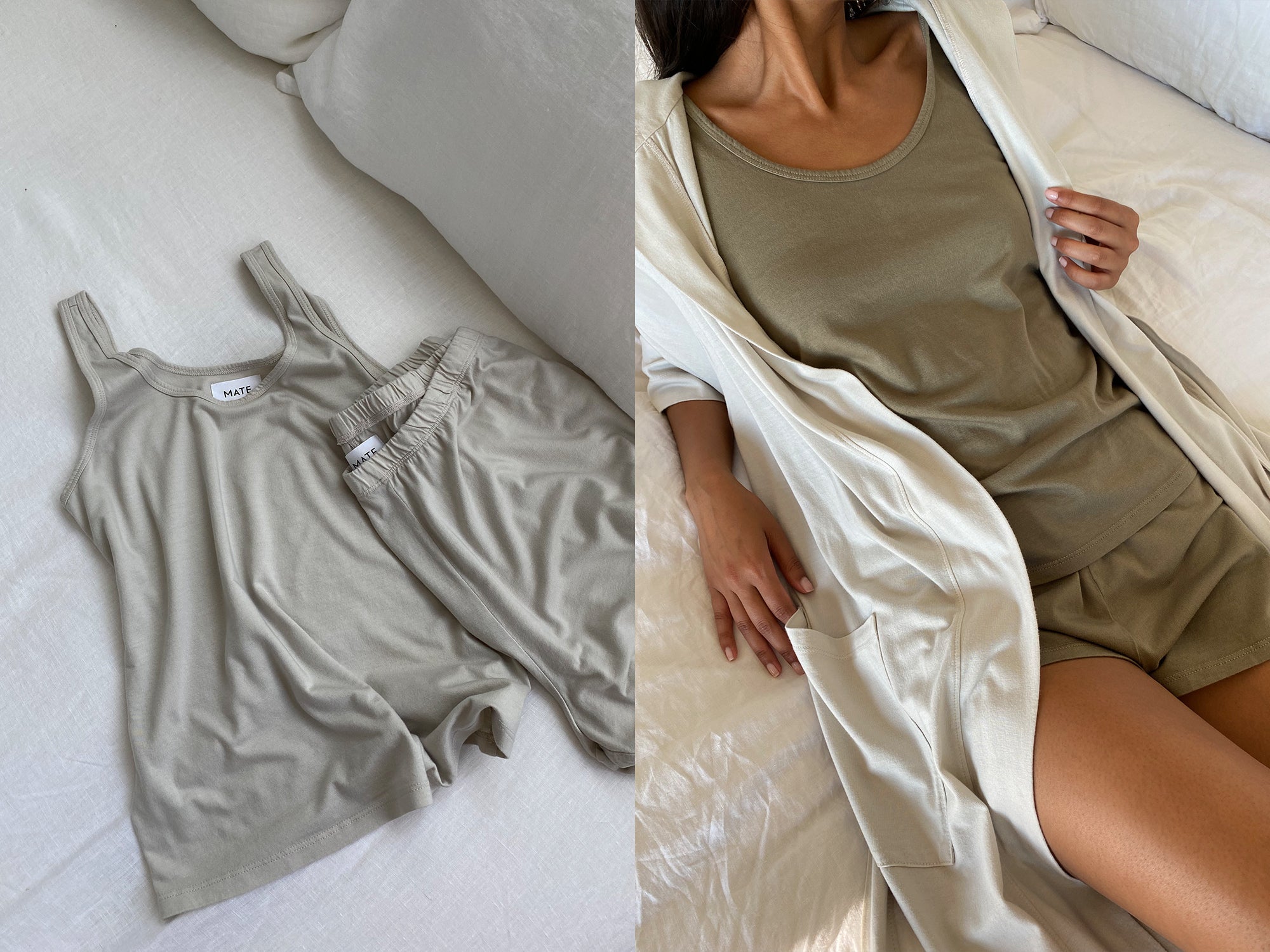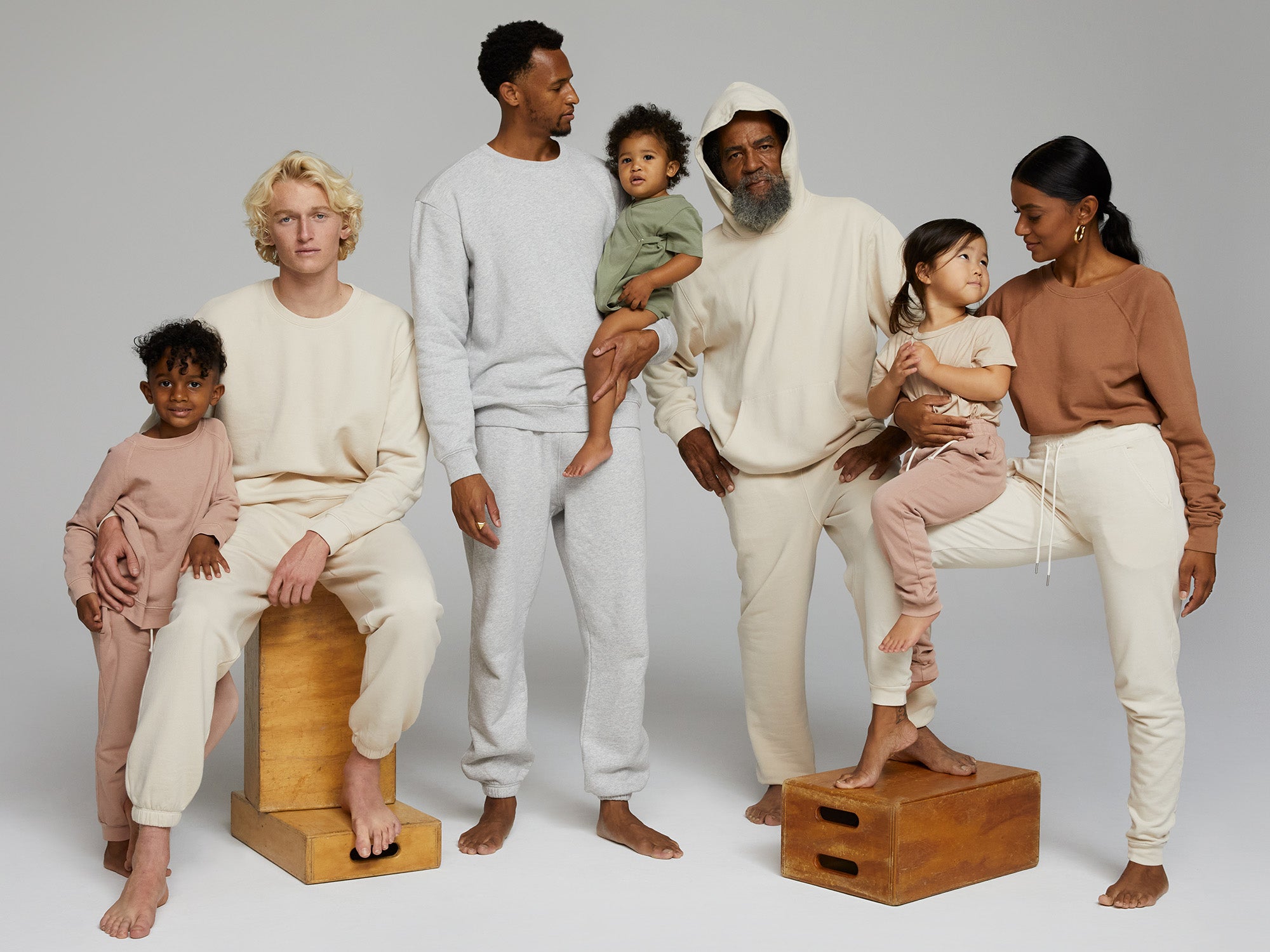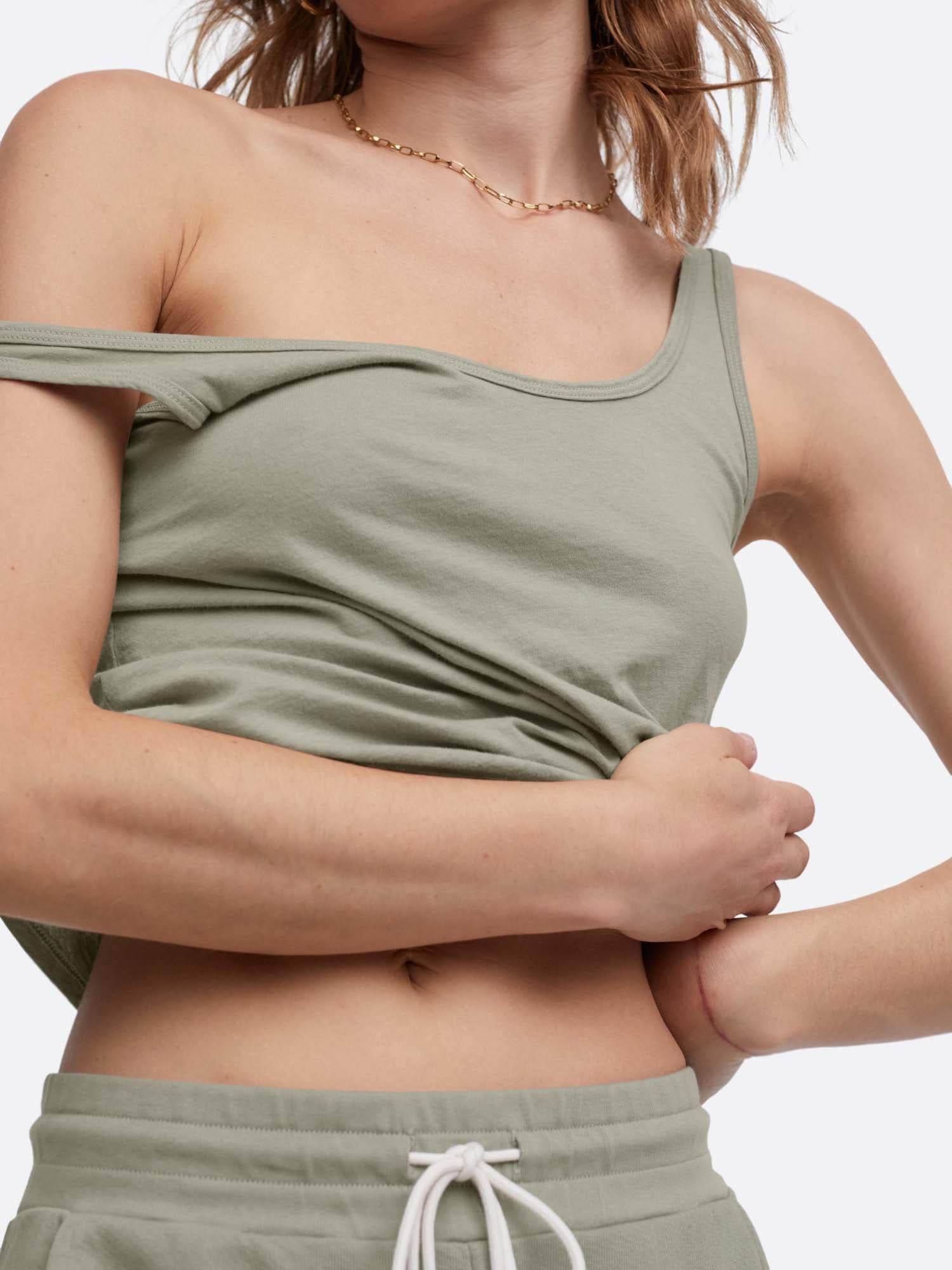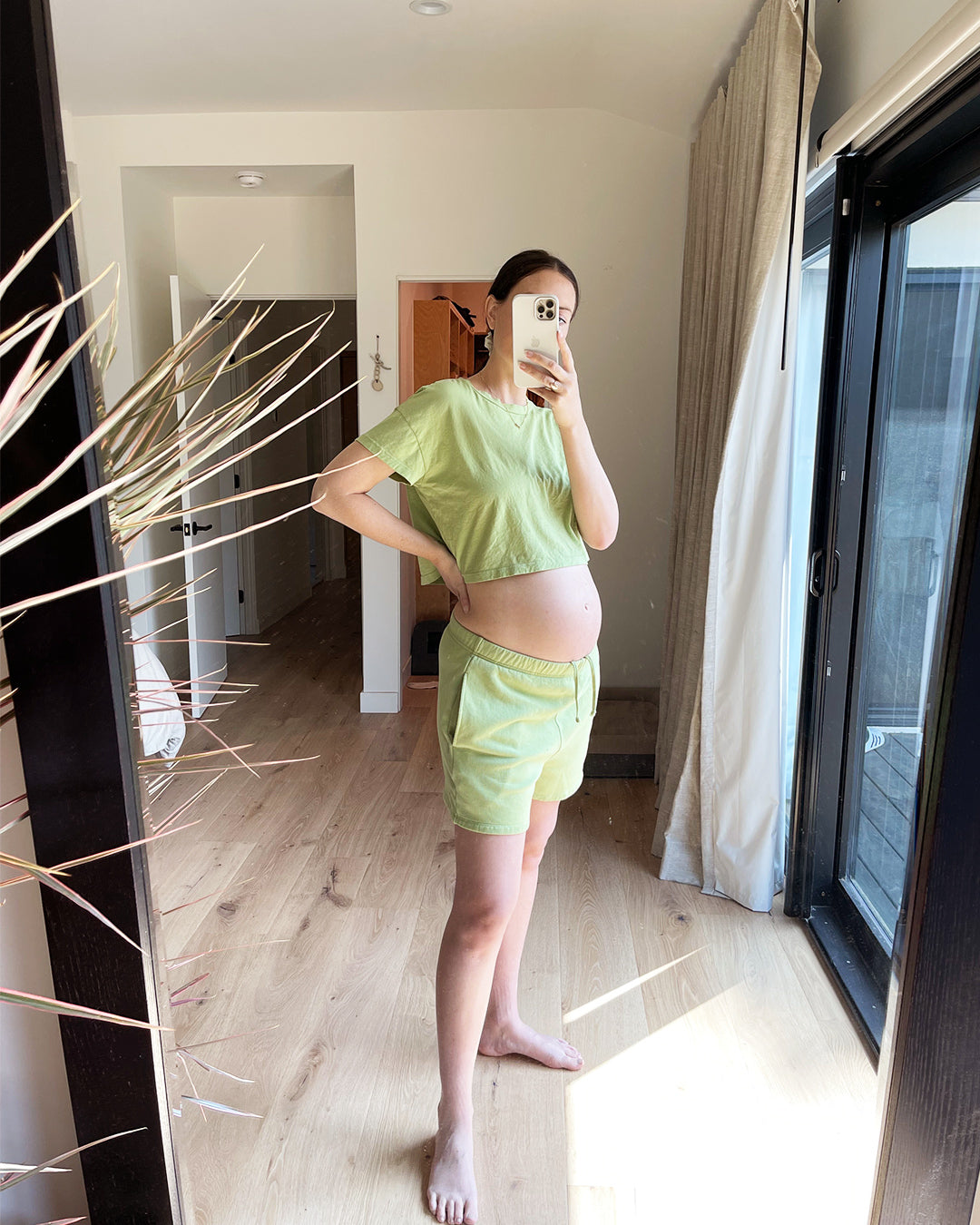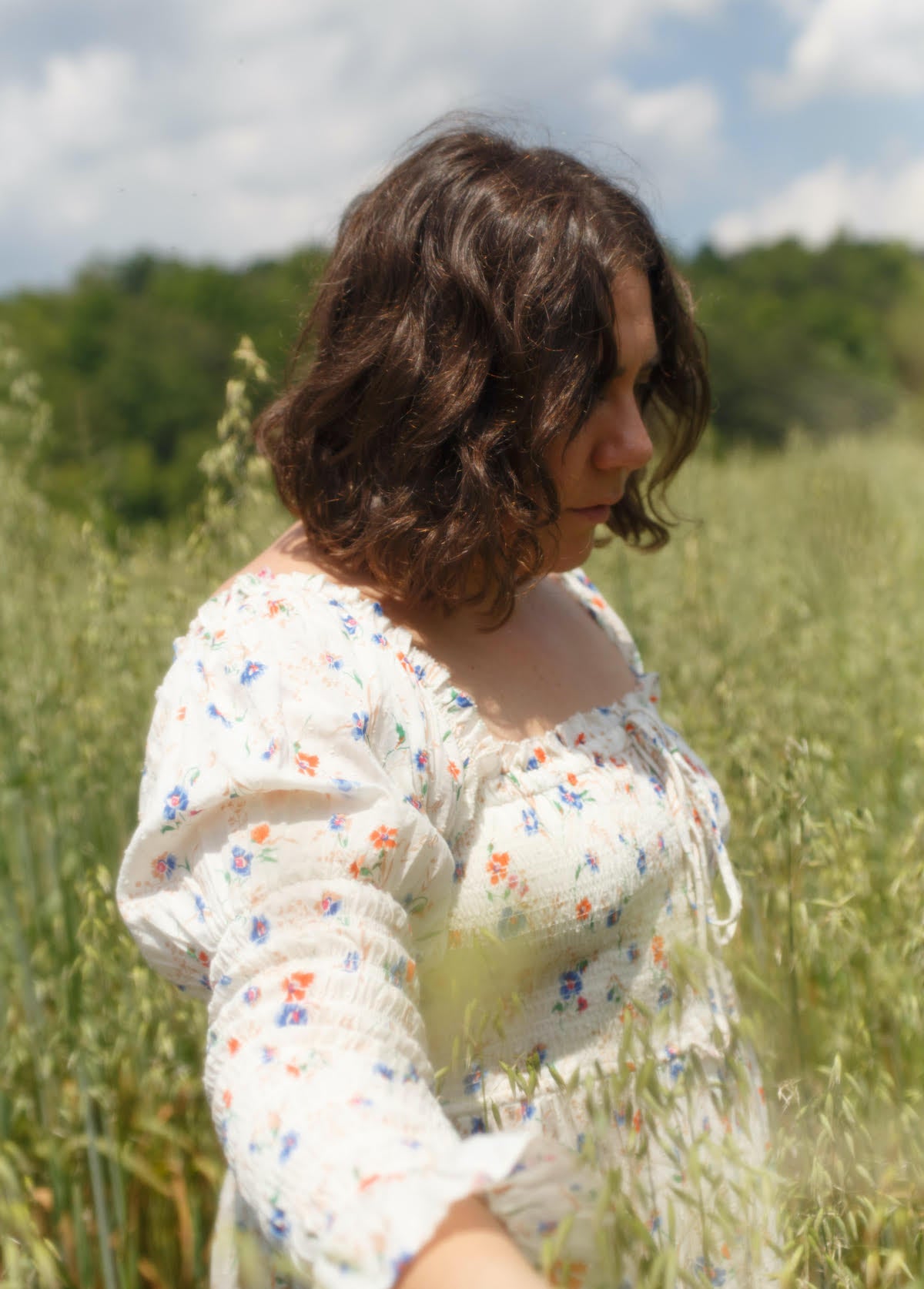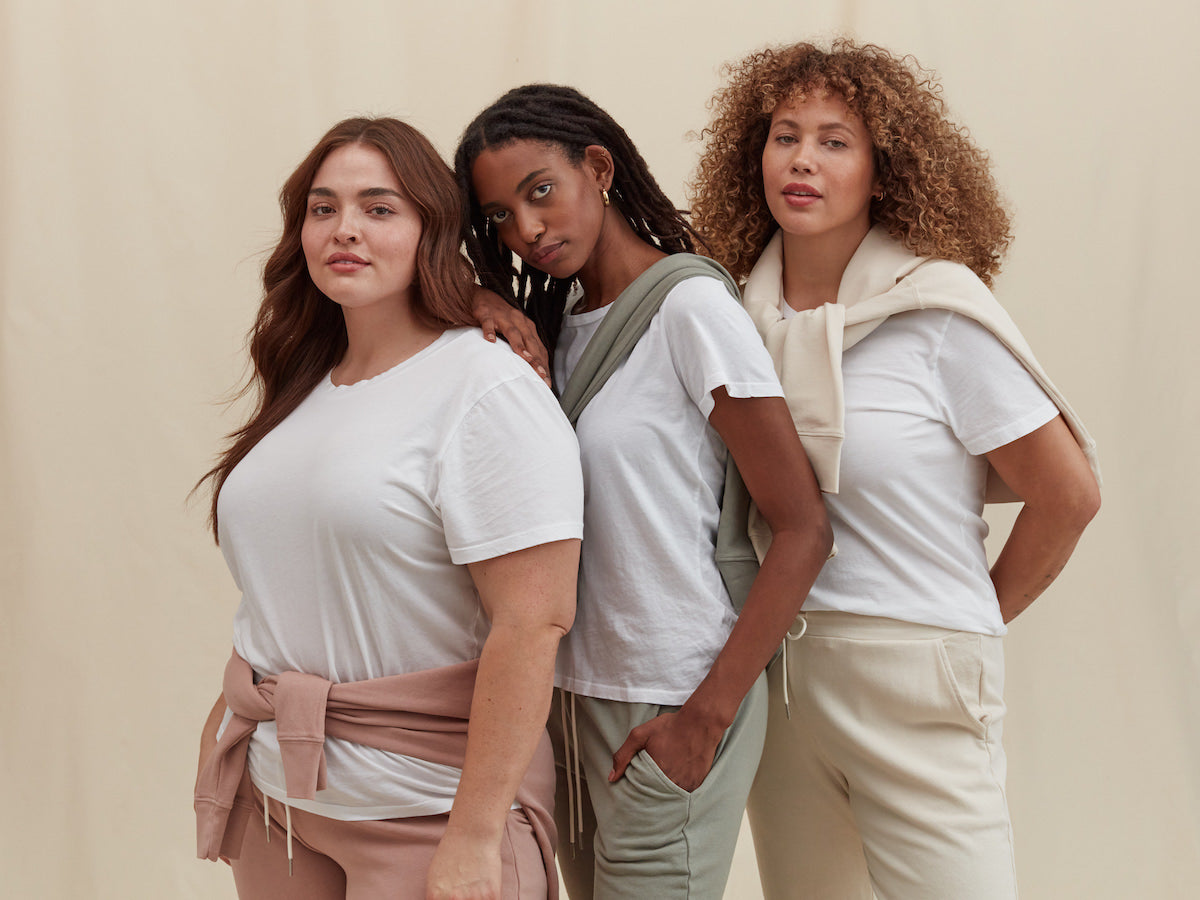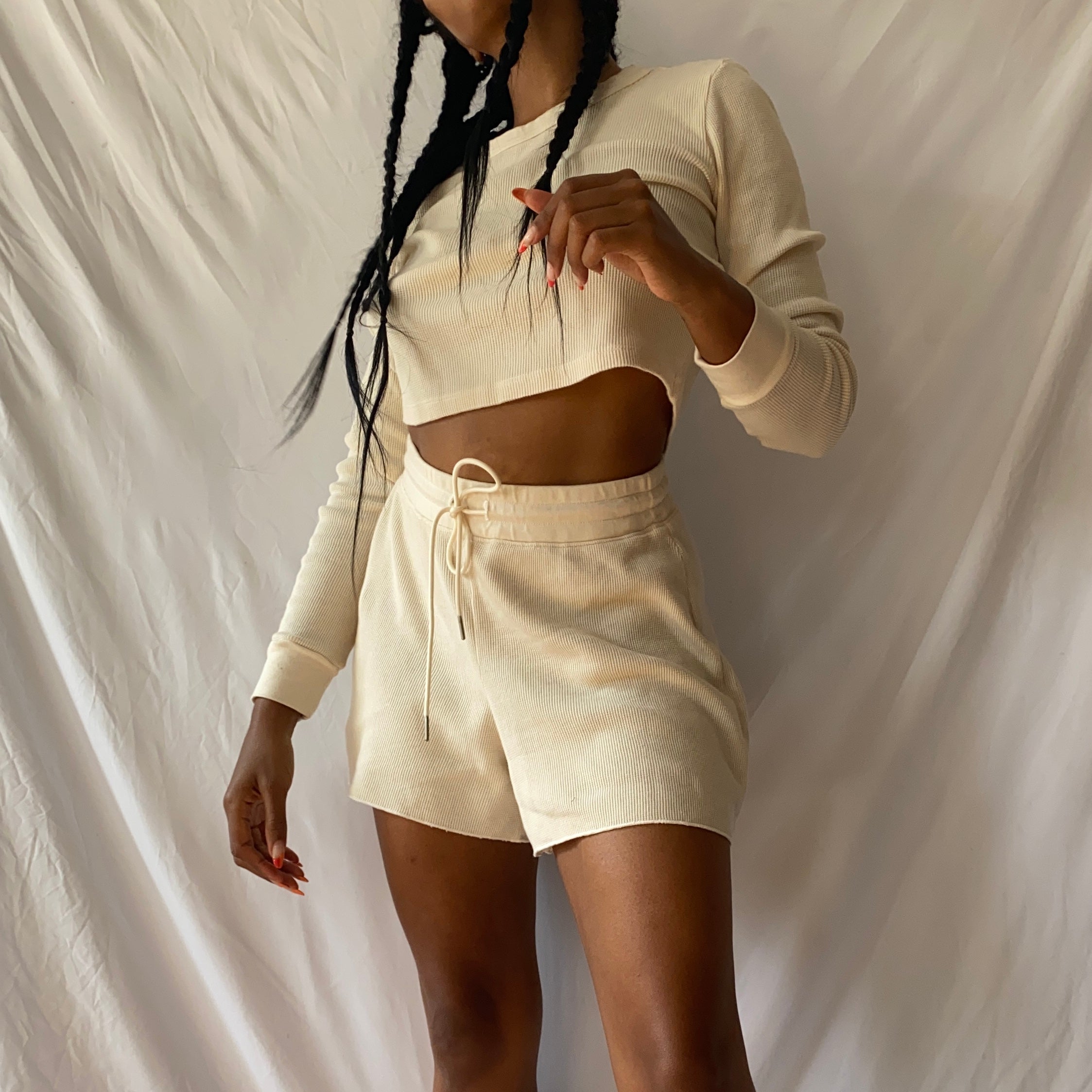Your Tote (0)
Organic Choices For You
Decoding Sustainable Fashion Certifications

There are so many sustainable fashion certifications out there, how do you know what they all mean? Read on to find out.
Sustainability claims have taken over the fashion industry recently, so much so that it seems all brands boast having efforts towards being sustainable. But, how do you know if they are credible?
The best - and simplest - way to know if a brand is truly a sustainable, environmentally conscious brand is by looking at their certifications. However, there are so many certifications out there - GOTS, OEKO-TEX, oh my! How do you know what is reputable, and what they all mean?
Listed below are the top sustainable fashion certifications you will most likely see as a consumer, organized by the area of sustainability they cover. Read on and save for the next time you are shopping.
Did you know? MATE is GOTS certified, Climate Neutral Certified, and a B Corporation!
Farming Initiatives
Better Cotton Initiative (BCI): BCI is focused on developing a more sustainable way to grow and source cotton. BCI principles include minimizing harmful pesticide usage, promoting water stewardship and soil health, enhancing biodiversity and responsible land usage, preserving fiber quality, and operating effectively. The ‘BCI-certified’ logo means the brand sources at least 10% of their cotton as Better Cotton, with a plan to increase this to at least 50% Better Cotton within five years.
Where will you see this certification? Anything made from cotton
Key takeaway: BCI-approved pieces use sustainably-sourced cotton
Climate Beneficial: Climate Beneficial is an initiative by Fibershed, local to California, focused on sourcing wool from farms that use regenerative practices to actually remove carbon from the environment and promote soil health.
Global Organic Textile Standard (GOTS): The GOTS certification covers everything from farming through clothing production, and seeing a ‘GOTS-certified’ piece means the brand worked with solely GOTS-certified facilities. These facilities have to adhere to certain environmental standards - such as ensuring that in the farming process, no pesticides or insecticides were used and all chemistry used by the brand in the production of clothing is in alignment with being truly Organic - as well as social criteria based on leading social sustainability standards. There are two GOTS label-grades: 'Organic' which requires a minimum of 95% Organic fibers and 'made with Organic materials' which requires at least 70% Organic fibers.
Forest Stewardship Council (FSC): The FSC is an organization promoting responsible forestry by upholding zero deforestation, safeguarding of ancient and endangered forests, fair wage and work environment, biodiversity preservation, and community rights including the rights of Indigenous Peoples. There are three labels by FSC:
- FSC 100%: All materials used come from responsibly managed, FSC-certified forests
- FSC Recycled: The product is made from 100% recycled materials
- FSC Mix: The product is made with a mixture of materials from FSC-certified forests, recycled materials, and/or FSC-controlled wood
Where will you see this certification? In fashion, this applies to packaging and cellulosic fibers (such as rayon, viscose, lyocell, modal, and Tencel) derived from trees
Key takeaway: FSC-approved pieces are responsibly sourced from forests
Regenerative Organic Certified (ROC): ROC is a relatively new certification for food, textiles, and personal care ingredients. This certification builds on the USDA Certified Organic standard by also monitoring soil health, animal welfare and social fairness for farmers and farm workings.
Where will you see this certification? In fashion, this certification can be found on fibers developed by farms using regenerative, Organic methods
Key takeaway: ROC-certified means the processes used to develop textiles promotes regenerating soil health and the full farm ecosystem
Toxicity and Pollution
Climate Neutral: The Climate Neutral certification is on a mission to eliminate carbon emissions. Brands that are Climate Neutral certified actively work to offset and reduce their carbon emissions and have credibly achieved a state of carbon neutrality.
Where will you see this certification? Any for-profit business is eligible (p.s., MATE is Climate Neutral Certified!)
Key takeaway: Brands that are Climate Neutral certified are credibly carbon neutral
bluesign: bluesign-approved facilities look at the overall chemistry used by a brand from fiber to finished product to ensure safe chemistry practices are used. From water waste to dye toxicity, bluesign-approved facilities take into consideration the health of consumers, garment workers, and the environment.
Where will you see this certification? Textiles, garment, apparel, equipment and footwear; most popularly in dye usage
Key takeaway: bluesign-certified products use chemistry methods that are healthier options for consumers, garment workers, and the environment
Cradle to Cradle (C2C): C2C is a standard designed to promote overall material and product circularity, focusing on products that are healthy for consumers and the environment, promoting clean air and climate protection, water and soil stewardship, and social fairness.
Where will you see this certification? Almost any product from clothing to furniture, from cleaning supplies to building materials can be C2C certified
Key takeaway: The C2C standard promotes material circularity
Leather Working Group (LWG): The LWG certification focuses on responsibly-made leather by providing supply chain transparency and minimizing the environmental impact of leather production. LWG-certified manufacturers must adhere to a variety of standards, including material traceability, restricting toxin usage (such as chromium), water usage, waste management, energy consumption, effluent treatment, and social workings. Traders in leather supply chains can also be LWG-certified, and adhere to standards in traceability, operations, and waste management.
Where will you see this certification? Leather pieces
Key takeaway: LWG-certified pieces are made from responsibly-sourced leather
OEKO-TEX: The OEKO-TEX certification is all about chemical safety. They have a variety of certifications, but the most popular one is the STANDARD 100. This certification means that the final product was tested to confirm that it is free from over 3,000 different toxic chemicals, making it a safer option for consumers’ health.
Where will you see this certification? All textile elements, including the fabric, as well as threads, buttons, zippers, linings, and prints and coatings applied to outer materials
Key takeaway: OEKO-TEX STANDARD 100-certified pieces are free from over 3,000 different toxic chemicals
Fair Labor
Fair Trade - There are two different Fair Trade certifications:
Fairtrade International: For farmers and workers, Fairtrade International ensures consistent, fair pricing for crop production, good working conditions and a ban on discrimination, forced and child labor, and security by promoting stronger relationships with buyers. For consumers, Fairtrade International means the producers and businesses have met the stringent Fairtrade social, economic and environmental standards.
Where will you see this certification? Fairtrade International products come from sources internationally
Key takeaway: Fairtrade International ensures farmers and workers receive fair compensation, good working conditions, and bans discrimination, forced and child labor
Fair Trade USA: The Fair Trade USA certification ensures safe working conditions, environmental protection, sustainable livelihoods and Community Development Funds (funds that allow farmers and workers to invest in development projects that address their community’s greatest needs, such as water, education, housing, and healthcare). In addition to social standards, the Fair Trade USA certification also includes certain environmental standards such as prohibiting the usage of GMOs and toxic chemicals.
Where will you see this certification? Fair Trade USA is based in the United States, but products can be sourced globally
Key takeaway: Fair Trade USA ensures safe working conditions, sustainable livelihood, and support for farmers and workers
SA8000: SA8000 is a certification for fair production in the factories where clothing is produced (because of this, you are less likely to see the logo on goods themselves and more likely to see it on a brand’s website). The conditions of the SA8000 are based on the guidelines of the International Labor Organization (ILO), such as prohibiting child labor, forced labor and discrimination, ensuring clean working conditions, providing a liveable wage, enforcing normal working hours, and ensuring sufficient time off.
Where will you see this certification? Factories and organizations that make goods are eligible
Key takeaway: SA8000 is a certification for fair production in the factories where clothing is produced
World Fair Trade Organization (WTFO): The WTFO is a global network of Fair Trade organizations that adhere to principles including providing opportunities for economically marginalized producers, transparency and accountability, fair trade and labor practices, climate action, and environmental protection.
Where will you see this certification? WTFO certified companies can be found internationally
Key takeaway: The WTFO is a network of Fair Trade organizations adhering to fair labor practices and environmental protection
Business
B Corporation: B Corporations uphold certain standards in social and environmental performance, such as verified performance, accountability, and transparency on factors from employee benefits and charitable giving to supply chain practices and input materials. It is a holistic standard meant to benefit all people, communities, and the planet.
Where will you see this certification? Any for-profit business is eligible (p.s., MATE is a B Corporation!)
Key takeaway: B Corporations are companies that prioritize their people, communities, and the planet
1% For the Planet: 1% For the Planet is a charitable initiative where businesses commit to donating at least 1% of annual sales to environmental organizations (1% certifies that all businesses uphold this commitment).
Where will you see this certification? Any for-profit business is eligible
Key takeaway: 1% For the Planet ensures that involved businesses donate at least 1% of their annual sales to environmental organizations
Organic Essentials. Clean from seed to skin. Shop Organic, non-toxic, natural clothing with MATE here.
More From The Journal
 female founded
female founded
Postcards from the Road: A Conversation with Yolo Journal’s Yolanda Edwards
Read more female founded
female founded
